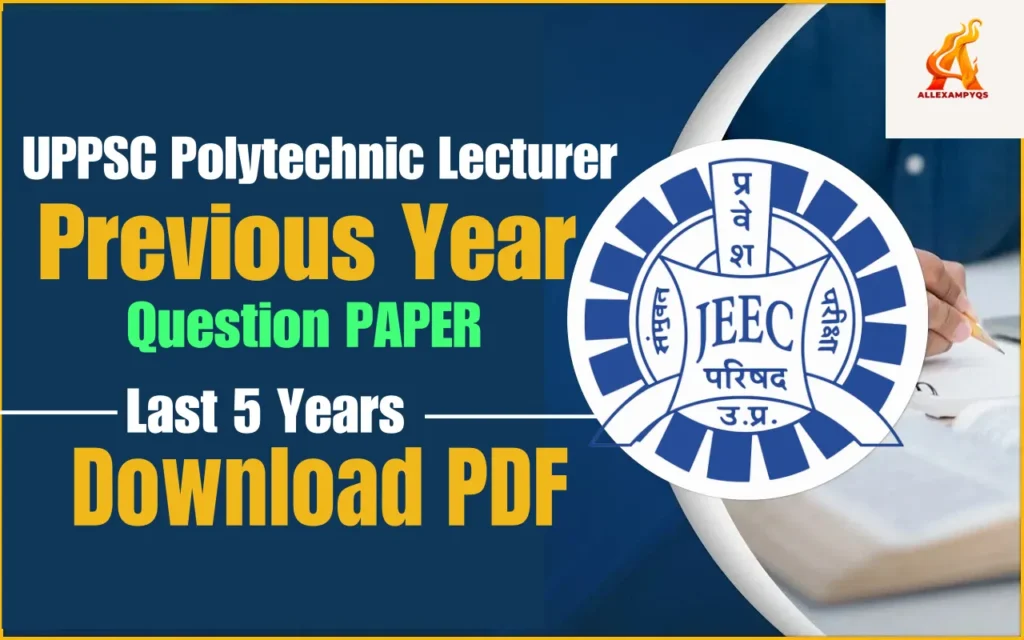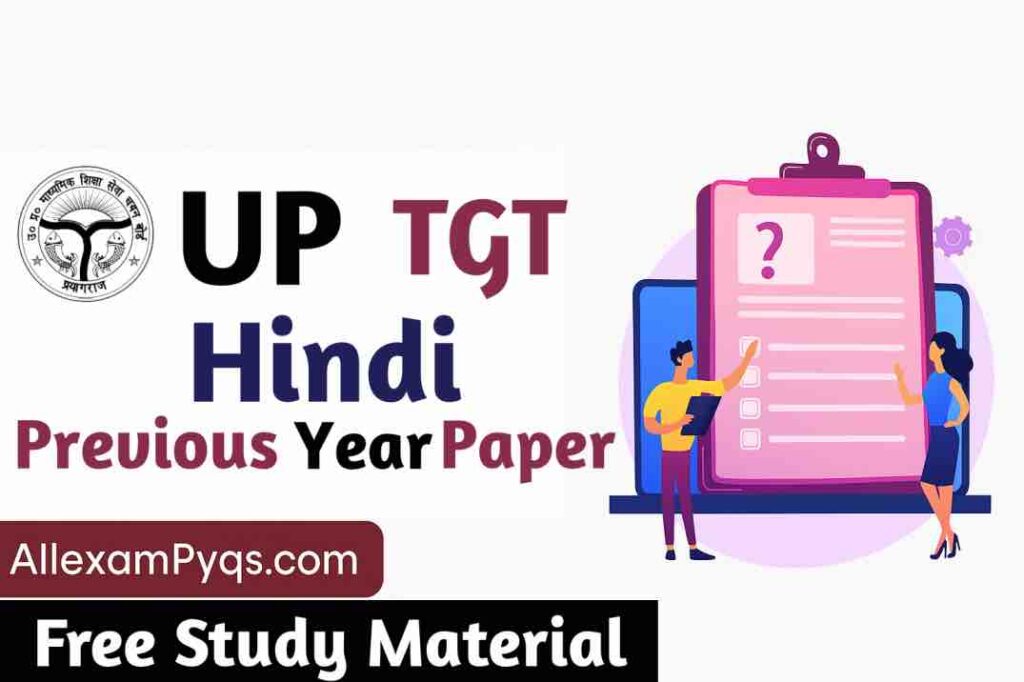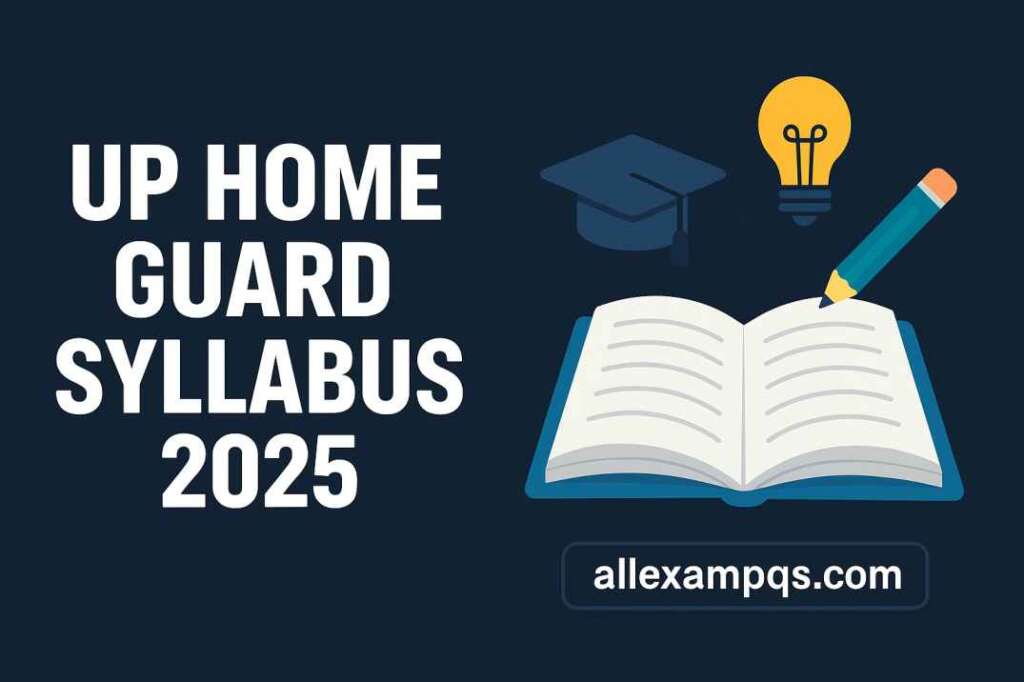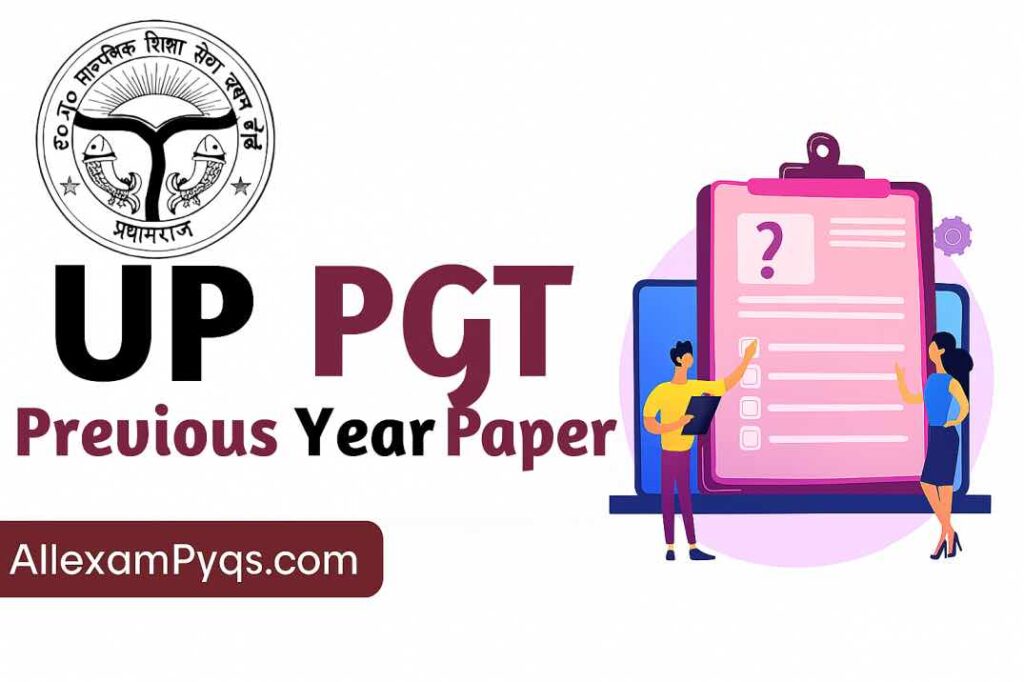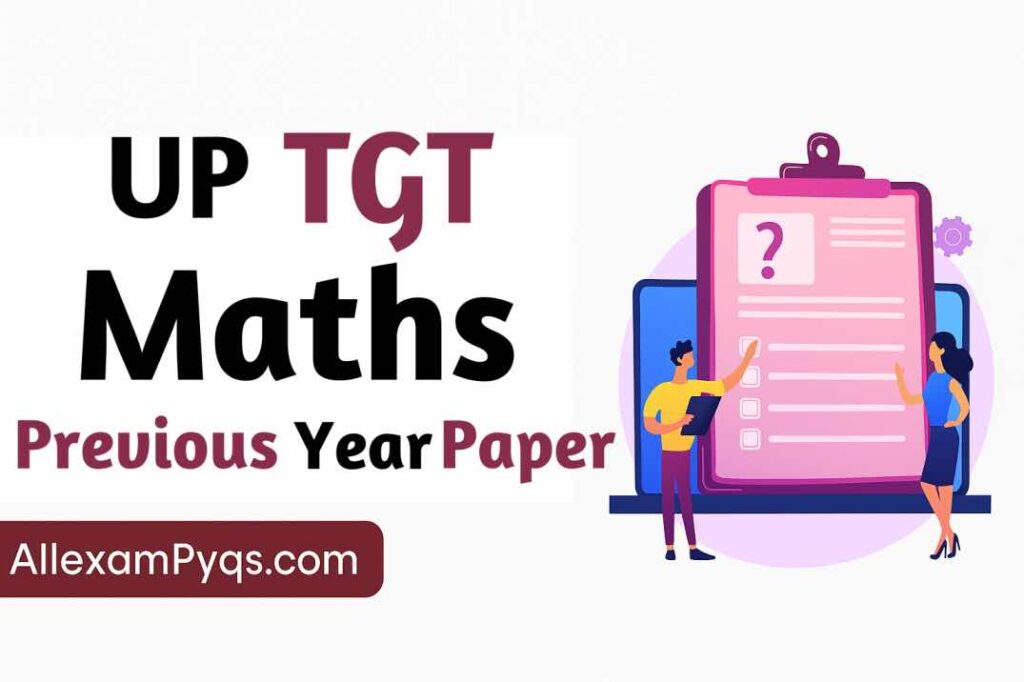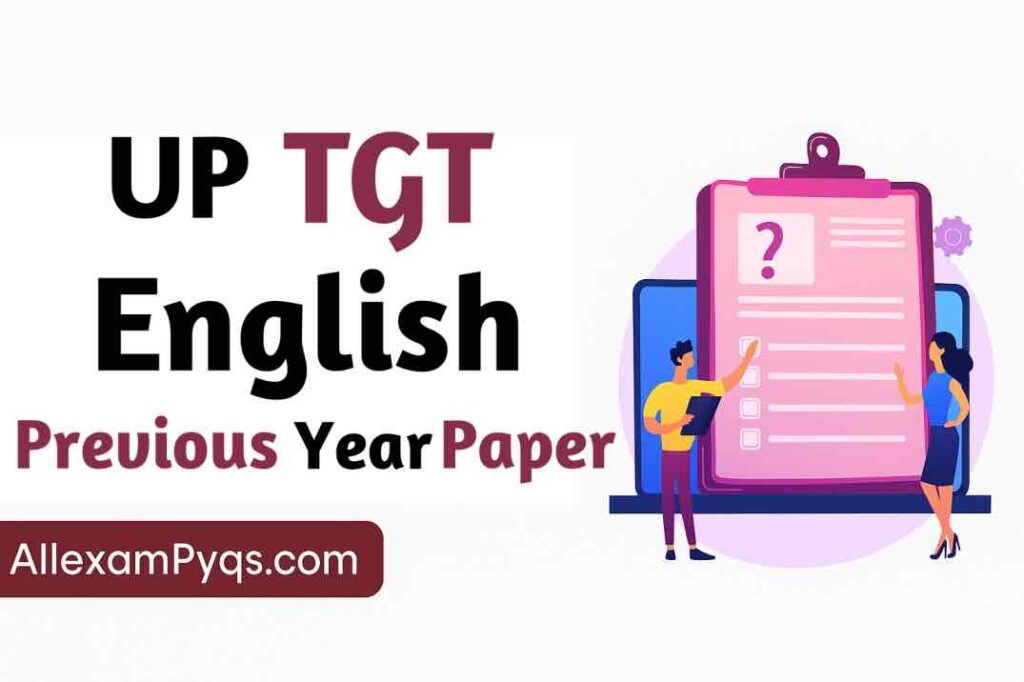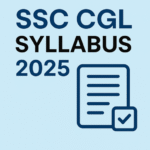📅 Published on: 24.08.2025
Table of Contents
ToggleUP PGT Sociology Syllabus in Hindi
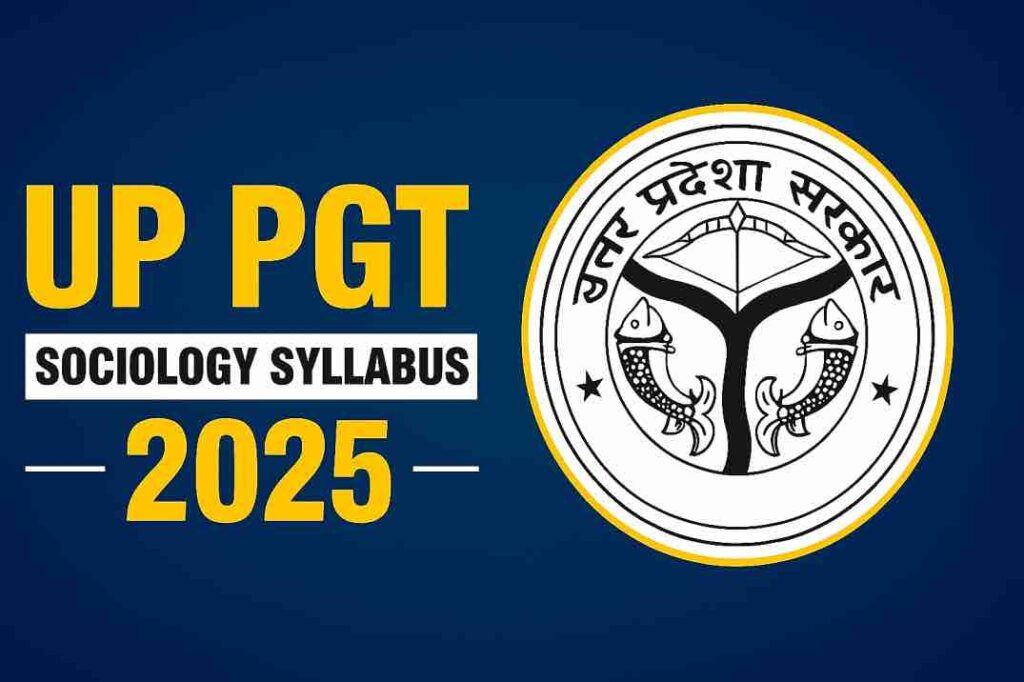
The Uttar Pradesh Secondary Education Service Selection Board (UPSESSB) conducts the UP PGT (Post Graduate Teacher) examination to recruit qualified teachers in various subjects. Among these, Sociology is a key subject for aspirants aiming to secure a teaching position in intermediate colleges of Uttar Pradesh. To prepare effectively, candidates must be well-aware of the UP PGT Sociology Syllabus 2025, exam pattern, and important topics. In this article, we provide a detailed overview along with a direct PDF download link for UP PGT Sociology Syllabus.
UP PGT Sociology Exam Overview 2025
Particulars | Details |
Conducting Body | Uttar Pradesh Secondary Education Service Selection Board (UPSESSB) |
Post Name | Post Graduate Teacher (PGT) Sociology |
Exam Level | State Level |
Mode of Exam | Offline (Written Test) |
Selection Process | Written Exam + Interview + Document Verification |
Language of Paper | Hindi & English |
UP PGT Sociology Exam Pattern 2025
Section | Marks | No. of Questions | Duration |
Subject Knowledge (Sociology) | 425 | 125 | 2 Hours |
Interview | 50 | – | – |
Special Qualification | 25 | – | – |
Total | 500 | – | – |
Detailed UP PGT Sociology Syllabus 2025 in Hindi pdf Download
शिक्षा का अर्थ, परिभाषा, स्वरूप (औपचारिक, अनौपचारिक, अर्धऔपचारिक) एवं विषय क्षेत्र, शिक्षा का उद्देश्य एवं शिक्षा के अंगभूत, प्राथमिक, माध्यमिक एवं उच्च शिक्षा का उत्तर प्रदेश में स्वरूप एवं संगठन, महान विचारक जैसे टेगोर, अरविन्द, मालवीय, विवेकानन्द के शैक्षिक विचार, शिक्षा में नवनवीन–जीवन दृष्टि शिक्षा, सतत शिक्षा, जनशिक्षा, सम्पूर्ण साक्षरता अभियान और शिक्षा दूरदर्शन एवं खुला विद्यालय।
भारतीय शिक्षा का इतिहास एवं समस्याएँ–वैदिक कालीन, बौद्धकालीन, मध्यकालीन, ब्रिटिश कालीन एवं स्वतंत्रता के पश्चात भारतीय शिक्षा की विशेषताएँ। उनका आधुनिक शिक्षा पर प्रभाव, स्वतंत्र भारत में शिक्षा का संरचनात्मक स्वरूप एवं विभिन्न आयोगों की सिफारिशें एवं मूल्यांकन। भारत में प्राथमिक, माध्यमिक एवं उच्च शिक्षा के परिप्रेक्ष्य में नियोजन, मूल्यांकन एवं समसामयिक समस्याओं की विवेचना। शिक्षा की ज्वलन्त समस्याएँ–राष्ट्रीय एकता एवं शिक्षा, शिक्षा बेरोजगारी, जाति–विवाद, छात्र–अशांति, नैतिक शिक्षा, शिक्षा का अंतर्राष्ट्रीय स्तर एवं व्यावसायिक शिक्षा।
शिक्षा का दर्शन एवं समाजशास्त्र –
शिक्षा एवं दर्शन का सम्बन्ध, शिक्षा–दर्शन का स्वरूप एवं महत्व। शिक्षा–दर्शन की विभिन्न शाखाएँ–आदर्शवाद, प्राकृतिकवाद, प्रयोगवाद, यथार्थवाद के अनुसार शिक्षा का उद्देश्य, पाठ्यक्रम विधियाँ एवं अनुशासन। शिक्षा समाजशास्त्र–अर्थ एवं विषय क्षेत्र, संस्कृति एवं शिक्षा का सम्बन्ध, शिक्षा एवं आधुनिकीकरण, सामाजिक स्तरीकरण एवं शिक्षा, सामाजिक परिवर्तन एवं शिक्षा, साम्प्रदायिकता एवं शिक्षा, ग्रामीण एवं शहरी शिक्षा।
शिक्षा मनोविज्ञान –
अध्ययन हेतु इसका महत्व, विकास एवं अनुभूति, बालक की शैशवावस्था में शारीरिक, मानसिक, सामाजिक एवं संवेगात्मक विकास एवं शिक्षा में उसका महत्व। व्यक्तित्व एवं व्यक्तित्व का मापन, शिक्षा में इसके महत्व, सीखन–नियम एवं विभिन्न सिद्धान्त जैसे थार्नडाइक, पैवलव, कोहलर, स्किनर, किलपैट्रिक एवं बंडूरा के सिद्धान्तों की विवेचना। शैक्षिक निबंधिका, अभिप्रेरणा एवं सीखने का स्थानान्तरण, बुद्धि–स्वभाव, बुद्धिमत्ता, मानसिक स्वास्थ्य एवं शिक्षा में इसका महत्व, चिन्तन एवं समस्या समाधान, सृजनात्मकता, स्मृति–विस्मृति, प्रयास निर्माण का अर्थ एवं शैक्षिक मूल्यांकन।
शैक्षिक मापन, मूल्यांकन एवं सांख्यिकी –
शिक्षा में मापन एवं मूल्यांकन का अर्थ, क्षेत्र, उद्देश्य, मापन एवं वस्तुनिष्ठ परीक्षा, विश्वसनीयता, वैधता एवं मानक का निर्धारण। उपलब्धि परीक्षण का निर्माण एवं विभिन्न पदों की विवेचना। निबन्ध, लघुत्तरी तथा मानक स्तरीय परीक्षण, ग्रेड प्रणाली, मापन के पैमाने एवं परिवर्तन, शैक्षिक आंकड़ों का योज्यात्मक एवं योज्यात्मक–रूपात्मक विवेचन। शैक्षिक साख्यिकी का उपयोग जैसे औसत, माध्यक, बहुलक, मानक विचलन, सहसंबंध, पियरसन सहसंबंध, रैंक सहसंबंध, प्रश्नावली एवं आंकड़ों का विश्लेषण।
UP PGT Sociology Syllabus 2025 in English pdf Download
The meaning, definition, and nature of education (formal, informal, non-formal) along with its subject area; the objectives of education and its essential components; the structure and organization of primary, secondary, and higher education in Uttar Pradesh. Educational thoughts of great thinkers such as Rabindranath Tagore, Sri Aurobindo, Madan Mohan Malaviya, and Swami Vivekananda. New trends in education such as life-oriented education, continuing education, adult education, literacy movements, distance education, and open schools.
A historical perspective of Indian education and its challenges – education during the Vedic, Buddhist, Medieval, and British periods, and the characteristics of Indian education after independence. Impact of these on modern education. Structure of education in independent India and evaluation of recommendations by various commissions and committees. The scenario of primary, secondary, and higher education in India with reference to planning, evaluation, and contemporary issues. Major current problems of education – national integration, unemployment, caste conflict, student unrest, moral education, vocational education, and international perspective in education.
Philosophy and Sociology of Education –
Relationship between education and philosophy, the nature and importance of philosophy of education. Different branches of educational philosophy – Idealism, Naturalism, Pragmatism, Realism – their aims of education, curriculum, methods, and discipline. Sociology of education – meaning, scope, relationship between culture and education, education and modernization, social stratification and education, education and social change, communalism and education, rural and urban education.
Educational Psychology –
Meaning, importance, growth, and development; role of heredity and environment in child development. Physical, mental, social, and emotional development of a child during different stages and their educational significance. Personality and its measurement, importance of personality in education. Learning – meaning, importance, and laws of learning; different theories of learning by Thorndike, Pavlov, Kohler, Skinner, Kilpatrick, and Bandura. Educational implications of these theories. Motivation and transfer of learning, intelligence – meaning, nature, and measurement. Mental health and its importance in education. Thinking, problem solving, creativity, memory, forgetting, and the role of effort and educational evaluation.
Educational Measurement, Evaluation, and Statistics –
Meaning, scope, and importance of measurement and evaluation in education. Characteristics of a good test, objectivity, reliability, validity, and standardization. Construction of achievement tests and their types – essay type, short answer, and objective tests. Grading system, scales of measurement, educational data analysis, and interpretation. Use of statistics in education – measures of central tendency (mean, median, mode), measures of variability (standard deviation), correlation (Pearson correlation, rank correlation), probability curve, normal distribution curve, and interpretation of educational data with suitable statistical tools.
UP PGT Sociology Syllabus PDF Download
Candidates preparing for the exam can easily access the official syllabus in PDF format for quick revision and offline use.
You may also like this
Preparation Tips for UP PGT Sociology 2025
- Go through NCERT Sociology books of Class 11 & 12 for fundamentals.
- Read standard reference books like Haralambos, Ritzer, and Indian Sociologists.
- Practice previous year question papers for better understanding of exam trends.
- Make short notes on thinkers and sociological theories.
- Revise regularly and focus on conceptual clarity.
Subject | Download Link |
UP PGT Geography Syllabus | |
UP PGT history Syllabus | |
UP PGT Political Science Syllabus | |
UP PGT English Syllabus |
Important Topics for UP PGT Sociology / Education 2025
1. Philosophy of Education
- Idealism, Naturalism, Pragmatism, Realism – their educational implications
- Educational thoughts of Tagore, Aurobindo, Malaviya, Vivekananda
- Relationship between Education and Philosophy
2. Sociology of Education
- Education and Social Change
- Role of Education in Modernization & Globalization
- Social Stratification: Caste, Class, Mobility
- Rural and Urban Education Issues
- Education and National Integration
3. Educational Psychology
- Growth and Development of Child – physical, mental, emotional, social
- Learning Theories: Thorndike, Pavlov, Skinner, Kohler, Bandura
- Motivation and Transfer of Learning
- Intelligence: Concepts, Measurement & Types
- Personality and Mental Health in Education
4. Educational Measurement & Evaluation
- Concept of Measurement, Evaluation and Assessment
- Reliability, Validity, Standardization of Tests
- Achievement Tests: Essay Type, Objective, Short Answer
- Statistics in Education – Mean, Median, Mode, Standard Deviation
- Correlation: Rank and Product Moment, Normal Probability Curve
5. Indian Education System
- Education in Vedic, Buddhist, Medieval and British Period
- Post-Independence Education Reforms & Commissions (Kothari Commission, etc.)
- Contemporary Issues: Unemployment, Caste Conflict, Women Education, Student Unrest
- Vocational and Moral Education
Conclusion
The UP PGT Sociology syllabus 2025 is vast and requires systematic preparation. Candidates should focus on sociological theories, Indian society, and research methodology while also solving previous year papers. Downloading the syllabus in PDF form helps in structured study and revision. With consistent practice and proper planning, aspirants can score high and secure their position as a Sociology Post Graduate Teacher in Uttar Pradesh.
FAQs Section - UP PGT Sociology Syllabus 2025
Q1. What is the total weightage of Sociology in UP PGT Exam?
The Sociology paper carries 425 marks in the written exam.
Q2. Is NCERT enough for UP PGT Sociology preparation?
NCERTs are good for basics, but you should also refer to standard reference books and previous year papers.
Q3. Where can I download UP PGT Sociology Syllabus PDF?
You can download it directly from the official UPSESSB Website link is given above

